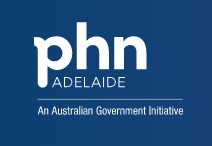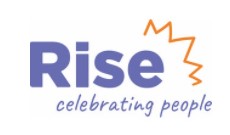Empowering people with intellectual disabilities to lead healthy and active lives through annual health assessments
In Australia, approximately 450,000 people, or 1.8 per cent of the Australian population, have intellectual disability. Compared with the general population, people with intellectual disabilities experience poorer health.
As well as being more likely to suffer a premature death, they are also more likely to receive inadequate health promotion advice, are less informed about the disease prevention and typically have poorly managed health conditions. Annual Health Checks have been shown to improve morbidity and mortality in this group.
Developed by researchers at The University of Queensland in Brisbane, Australia, the Comprehensive Health Assessment Program (CHAP) is an evidence-based, annual health assessment tool that facilitates collaboration between the person with the intellectual disability, their supporter or carer, and their family doctor or GP, and helps people with an intellectual disability to better manage their care needs.
What is the CHAP?
The CHAP is a two-part questionnaire that is designed to be undertaken annually. The first part of the questionnaire creates a comprehensive health history and is completed by the family, supporter/carer, and/or the person with the intellectual disability. This helps GPs to become aware of commonly missed, poorly managed or syndrome specific health conditions that may need to be addressed. the GP completes the second part of the questionnaire to create an agreed health action plan.
There are two versions of the CHAP: one for adults and another for adolescents. Both are regularly updated to ensure consistency with current clinical practice guidelines.

The expert behind the CHAP
Professor Nick Lennox
Professor Nick Lennox is from UQs Faculty of Medicine and is the former director of the Queensland Centre for Intellectual and Developmental Disability (QCIDD).
Professor Lennox has specialised in the health of adults with intellectual disability since 1992, developing the CHAP in 1999. He successfully advocated for systemic change at local, state, national, and international level including the introduction of a health assessment Medicare payment system to support GPs to perform these assessments on people with an intellectual disability.
Professor Lennox continues to advocate at all levels to promote and support the uptake of annual health assessments across Australia through his advisory and consultancy work.
The science behind the CHAP
The CHAP is backed by over 20 years of gold standard research and scientific evidence.
In 2007, a foundation article was published describing its development and validation. Its importance has been recognised by leading international researchers. According to Professor Eric Emerson, a respected researcher in the field of intellectual disability, the CHAP study contributes to the world literature the most conclusive evidence that health gain resulted from an intervention.
Foundation article and RCTs:
Lennox N, Bain C, Rey-Conde T, Purdie D, Bush R, Pandeya N. Effects of a comprehensive health assessment programme for Australian adults with intellectual disability: a cluster randomized trial.</font color> Int J Epidemiol. 2007 Feb;36(1):139-46.
Lennox N, Bain C, Rey-Conde T, Taylor M, Boyle FM, Purdie DM, et al. Cluster randomized-controlled trial of interventions to improve health for adults with intellectual disability who live in private dwellings</font color>. Journal of Applied Research in Intellectual Disabilities. 2010;23(4):303-11.
Who uses CHAP
The CHAP is used by state government health services, NGOs, disability support providers, General Practitioners, nurses, academics, and people with intellectual disabilities and their families, in Australia and internationally.
User reviews
Service providers across Australia use and trust the CHAP in their work with people with intellectual disabilities.
Here’s what some of them have to say.
Anthony Steele
Disability Practice Specialist,
Endeavour Foundation
"The tool allows for better collaboration and involvement between the service provider, clients, and their families and means we can apply the healthcare arrangements that an ordinary person would have access to in the community. These are things like dental care, vaccinations, breast, bowel and prostate screening that is specific to gender and cognitive of any pertinent family history, skin and hearing checks.”
Get the CHAP
The CHAP is available under licence for general or research purposes.
The General Use Licence is ideal for use by individuals or service providers.
The Research Licence is only available for use by academic or teaching institutions where it’s use is required for a specific research project. Where the teaching institution is also a clinical service provider, then a General Use Licence is required. Research licencees are not permitted to use the CHAP for continuing clinical or disability support usage.













